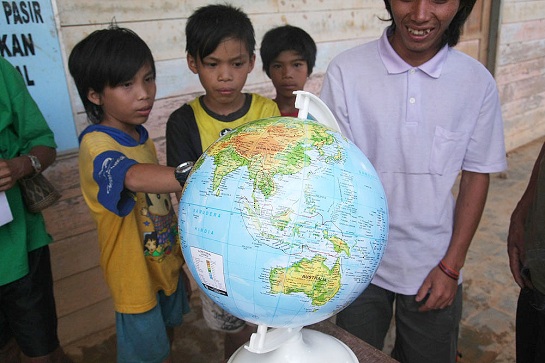- Bringing logging companies in line with FSC certification standards in the Congo Basin
- Building knowledge about climate change adaptation in Congo Basin
- New 10-year research initiative to protect forests and reduce risks for forest communities
- Bioenergy, sustainability and trade-offs
- Landmark findings show mangroves key to fighting climate change
- Rural poor rely on forests for nearly a quarter of household income
- Integrating the management of timber and non-timber forest products in the Amazon
- Reviving frankincense and myrrh for livelihoods and conservation in Ethiopia
- Urgent call for action at Forest Day 5
- Shining a spotlight on Indonesia’s forests
- Pathways to impact

New 10-year research initiative to protect forests and reduce risks for forest communities
Across the whole tropical realm, vast swathes of woodlands and forests are being lost. Clearing forests for farms or cities can improve local living conditions, but often forest destruction intensifies poverty and does irreparable harm to valuable ecosystems.
With declining forest areas looming as a major threat to climate health and the wellbeing of a billion impoverished people, in 2011 the CGIAR launched a 10-year global research programme devoted to forests, trees and agroforestry.
The CGIAR chose CIFOR to lead this programme in partnership with three other CGIAR Centers – the World Agroforestry Centre (ICRAF), International Center for Tropical Agriculture (CIAT) and Bioversity International – and with many other international and national partners.
The CGIAR Research Programme Forests, Trees and Agroforestry aims to reinvigorate efforts to reduce deforestation and forest degradation and expand the cultivation of trees on farms as a way to sustainably increase rural incomes. As part of its mandate, the programme looks at conserving forest biodiversity and the critical importance of forests as natural ‘carbon sinks’ that can keep carbon out of the atmosphere and help slow the pace of climate change.
"We urgently need a strong and sustained effort focused on forest management and governance, given the crucial role of forests in confronting some of the most important challenges of our time: climate change, poverty and food security."
Frances Seymour
CIFOR Director General
It is believed that improved management of forests and trees can reduce risks for smallholder farmers and improve the wellbeing of forest-dependent people, particularly women and other commonly disadvantaged groups.
‘We urgently need a strong and sustained effort focused on forest management and governance, given the crucial role of forests in confronting some of the most important challenges of our time: climate change, poverty and food security,’ said Frances Seymour, CIFOR Director General.
The programme targets tropical forests and woodlands, which make up about 46% of the global forest cover. In 10 years it is expected to have contributed to a yearly reduction of deforestation and forest degradation of between 0.5 and 1.7 million hectares, and to have increased sustainable production and management practices of tropical forests resulting in an expected yearly reduction of between 0.16 and 0.68 gigatonnes of carbon-dioxide emissions.
